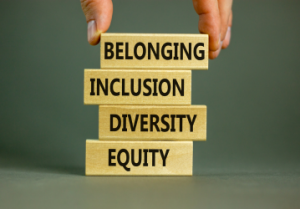Building a Culture of Wellbeing
 Metrics That Matter
Metrics That Matter
In today’s competitive business landscape, companies are recognising the value of prioritising employee wellbeing. This is not just as a means to enhance productivity, engagement, and retention. A critical component of fostering a culture of wellbeing lies in the hands of the Human Resources (HR) team. By effectively measuring key metrics, HR professionals can gain insights into the overall health and satisfaction of the workforce. Let’s explore what your HR team should measure. How do those metrics contribute to cultivating a culture of wellbeing within your company?
Employee Engagement:
Measuring employee engagement is a foundation for understanding the level of commitment and motivation within your workforce. By utilising surveys, feedback mechanisms, and performance evaluations, your HR team can assess factors such as job satisfaction, alignment with company values, and work-life balance. These metrics provide invaluable insights into the overall wellbeing of employees and identify areas for improvement. Engaged employees are more likely to experience a sense of purpose, take ownership of their work, and feel supported, leading to increased productivity and a positive work environment.
Wellness Programs Participation:
Wellness programs have gained significant traction in recent years and for good reason. By tracking the participation rates and analysing the impact of these programs, HR teams can gauge the level of interest and engagement in employee wellness initiatives. Metrics such as attendance at fitness classes, use of mental health resources, and adoption of healthy lifestyle activities can help assess the effectiveness of these programs. Regularly evaluating participation rates and soliciting employee feedback ensures that wellness initiatives align with the evolving needs and preferences of your workforce. It helps reinforce a culture that prioritizes wellbeing.
Employee Absenteeism and Sick Leave:
Monitoring and reviewing data on employee absenteeism and sick leave provides valuable insights into the physical and mental health of your employees. By identifying patterns and trends, HR teams can proactively address potential underlying issues, such as excessive workloads, stress, or burnout. This data enables companies to develop targeted interventions and support systems, promoting a healthy work-life balance and reducing the negative impact of absenteeism on productivity and morale.
physical and mental health of your employees. By identifying patterns and trends, HR teams can proactively address potential underlying issues, such as excessive workloads, stress, or burnout. This data enables companies to develop targeted interventions and support systems, promoting a healthy work-life balance and reducing the negative impact of absenteeism on productivity and morale.
Diversity and Inclusion Metrics:
Inclusion and diversity are integral components of a thriving culture of wellbeing. HR teams should measure metrics related to diversity representation, equal opportunity practices, and inclusivity initiatives. Tracking data on employee demographics, pay equity, and promotion rates provides valuable information on the progress and effectiveness of your diversity and inclusion strategies. Cultivating a diverse and inclusive workplace fosters a sense of belonging and psychological safety. These are vital for employee wellbeing and overall company success.
Employee Feedback and Surveys:
Regularly seeking employee feedback through surveys, focus groups, and one-on-one discussions is a powerful tool for understanding the pulse of your company. HR teams should measure metrics related to employee satisfaction, happiness, and overall wellbeing. This data provides actionable insights for improving policies, procedures, and the work environment. By actively listening to employee feedback, companies demonstrate a commitment to their workforce’s wellbeing. They create an open and transparent culture that values employee input.
Measuring the right HR metrics is instrumental in creating a culture of wellbeing within your company. By tracking employee engagement, wellness program participation, absenteeism, diversity and inclusion, and employee feedback, HR teams can gain valuable insights into the overall health and satisfaction of their workforce. These metrics enable companies to proactively address areas of improvement. Also aiding implement targeted interventions, and creating a supportive work environment that fosters employee wellbeing. Investing in these measurements not only leads to enhanced productivity and employee retention. But it also reflects a commitment to the holistic success and happiness of your most valuable asset—your employees.
Are you tracking the right data for your company and what is it telling you? Perhaps you outsource HR. in which case, who is doing this role and do you have the right metrics in place? As companies grow organically, these elements can often be missing. Would you like to discover what your metrics are telling you and how you can improve your company’s competitive advantage? Sign up for a Real Resilience Audit.
Want to know more? book a 30-minute discussion with our MD.
https://calendly.com/alisoncharles/30min



